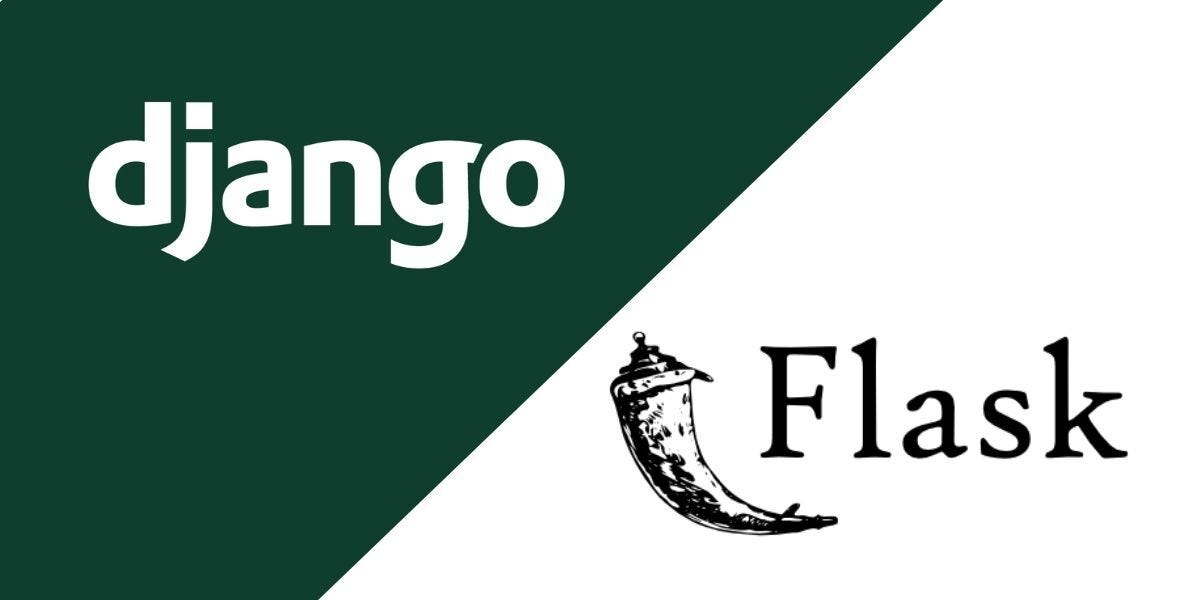Flask or Django: The Great Python Web Framework Debate
When developing web applications in Python, Flask and Django are two of the most prominent frameworks. Each brings unique strengths and is suited to different types of projects. This guide will clarify the key differences between Flask and Django, helping you choose the right framework for your needs.

Flask Overview
Flask is a lightweight and flexible web framework designed to be simple and modular. It offers the essential tools for building web applications while allowing developers to select their preferred libraries and tools.
Key Features of Flask:
Minimalist Design: Flask includes only the core functionality needed to build a web application, leaving the choice of additional components up to the developer. This design makes Flask highly flexible and adaptable.
Modularity: Developers can easily integrate various components, such as database libraries or authentication systems, without being constrained by a predefined structure.
Easy to Learn: Flask’s simple and clear API makes it accessible and straightforward for beginners.
Advantages of Flask:
Flexibility: Provides the freedom to choose different components and libraries based on project needs.
Simplicity: Its minimalist approach results in fewer abstractions and a more direct development process.
Fine-Grained Control: Offers developers greater control over application components and architecture.
Disadvantages of Flask:
Requires More Configuration: Developers need to manually configure additional components due to the framework’s limited built-in features, which can be time-consuming.
Limited Built-In Features: Lacks built-in features such as authentication or form validation, necessitating additional libraries or custom code.
Django Overview
Django is a high-level Python web framework designed to enable rapid development of robust, scalable, and secure web applications. It follows the "batteries-included" philosophy, providing numerous built-in features and a comprehensive structure.
Key Features of Django:
Built-In Components: Django includes a range of built-in tools, such as an ORM (Object-Relational Mapping) for database management, an admin interface, and user authentication.
Convention Over Configuration: Encourages best practices and conventions, reducing the amount of configuration required and allowing developers to focus more on application logic.
Scalability: Engineered to handle high-traffic applications, Django is used by many large-scale projects and companies.
When deciding between Flask and Django, consider the following factors:
Project Complexity:
Flask: Ideal for small to medium-sized projects where simplicity and flexibility are crucial. It is well-suited for microservices, APIs, or simple web applications.
Django: Better suited for larger, more complex projects where the built-in features and conventions can streamline development and provide a more structured approach.
Development Speed:
Flask: May require more time to set up and integrate features due to its minimal built-in tools.
Django: Offers faster development for feature-rich applications thanks to its extensive built-in functionality.
Learning Curve:
Flask: Easier for beginners to grasp due to its minimalistic approach.
Django: May have a steeper learning curve because of its comprehensive features and conventions, but it provides a more structured development environment.
Customization Needs:
Flask: Offers greater flexibility for customization, allowing developers to choose their tools and libraries.
Django: While its conventions might limit some customization, it provides a cohesive development experience with many built-in features.
Community and Ecosystem:
Flask: Benefits from a vibrant community and a range of third-party extensions that can be integrated into applications.
Django: Enjoys a large community and a rich ecosystem of plugins, extensions, and comprehensive documentation that supports rapid development.
Conclusion
Both Flask and Django are excellent Python web frameworks, each with its own strengths and ideal use cases. Flask’s simplicity and flexibility make it a great choice for projects requiring more control over tools and components. Django’s extensive built-in features and structured approach make it suitable for complex applications that benefit from a comprehensive framework.
Understanding the capabilities of each framework will help you make an informed decision that aligns with your project’s requirements and development goals. Whether you opt for Flask or Django, mastering these frameworks through Python training classes in Gurgaon, Delhi, Pune, and other cities across India will greatly enhance your ability to develop robust and effective web applications.